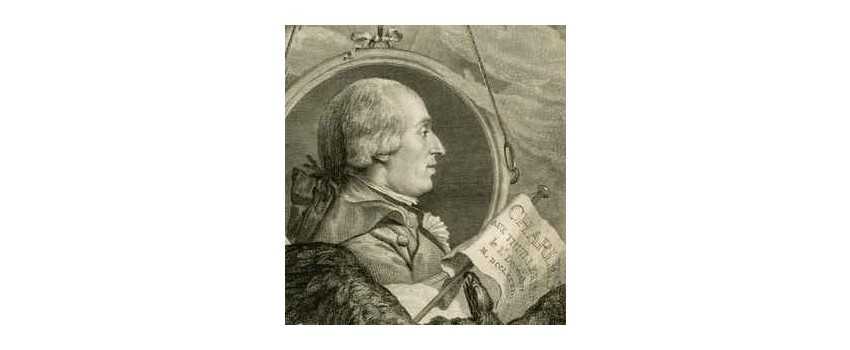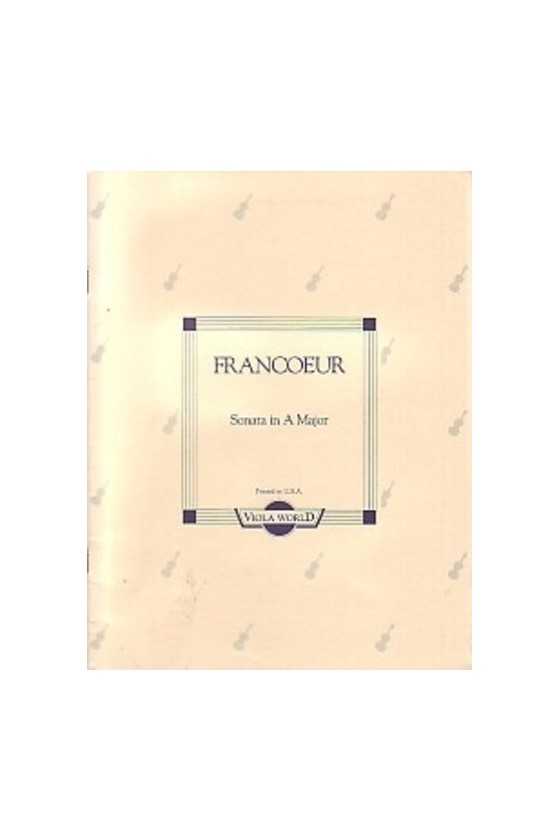Francoeur, François
François Francoeur (8 September 1698 – 5 August 1787) was a French violinist and composer. He was the son of a bass de violon musician and member of the Royal 24 Violins, Joseph France, born in Paris. At 15, France was accepted into the Académie Royale de Musique as a violinist after receiving instruction from his father. He returned to Paris as a member of the Concert Spirituel after touring and performing in the major cultural hubs of Europe. In 1730, Francur was assigned to the 24 violons du roy and in 1739, Maître de musique (music teacher) at the Opera.
After serving as Inspecteur musicaux (music directors) of Paris's Opéra for over two decades, he and his longtime friend and colleague François Rebel were in charge of all aspects of the opera house's administration in 1757. Debt, a lack of discipline, and disagreements between traditionalists who preferred French operatic tragedies with their mythological themes and those who chose Italian operatic lyricism and contemporary subject matter, known as the Querelle des Bouffons, were among the difficulties faced by Rebel and France in their joint roles.
Francis XV selected France in 1760 as his Music Master, ennobling Rebel and France themselves in May 1764. Unfortunately, the Paris Opéra burned down on April 6, 1763, forcing the two directors to retire in the wake of the tragedy. However, Louis XV urged Rebel to return to the Opéra as Administrateur général in 1772, a post he maintained until just before his death three years later due to this request. In 1787, France died at 89 after retiring from the music scene. When the French Revolution began, his nephew, Louis-Joseph France, Master of the King's Chamber music and orchestra conductor, was imprisoned for over a year until he was finally freed in 1794. Two collections of violin sonatas, 10 operas (including one depicting the story of Skanderbeg), and several ballets were published in Propyläen der Musik, V. 2 (1989). As a result, he is frequently cited as an example of a partnership in musical composition that is relatively uncommon. In a Fritz Kreisler book, he was given credit for a sicilienne and rigaudon that were later found to be the creation of Kreisler. The preceding recordings have been singled out for particular consideration for their sonic and aural qualities. Composers like France, who had limited instrumental output or didn't otherwise garner special professional attention, had frequently stayed obscure throughout the transition from an era when there was little interest in older music (19th and early 20th century). France's creativity and contagious rhythmic drive clarify why he was regarded as a great composer during his lifetime. He may have become a royal composer like Frederick the Great of Prussia had he had him as a music teacher earlier in his childhood, rather than a musical mediocrity who cooled his enthusiasm for the violin.
"Classical-era" composers who shunned the classical style of Haydn and Mozart may include France. There are few courtly gestures to be found in the music of France (believed to have been created about 1773), even though it was composed at the same time as Haydn and Mozart, who were both commissioned by royalty. Instead, strings are flavored with inventive wind instrumentation, giving it a more "advanced Rococo" feel. The growing bourgeoisie and lesser nobility in commercial hubs like London, Hamburg, Frankfurt, and Paris, who supplied a burgeoning market for musical creation, preferred this kind of music.



